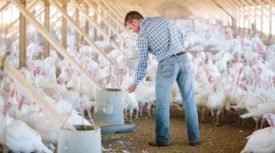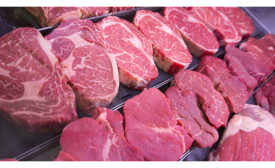Meat and Poultry Processing
Cover Story
California processor blends traditional production practices with modern-day operating philosophies.
Read More
Video | Coronavirus Coverage
FoodMaven buckles down to keep employees safe, product flowing
April 16, 2020
Tech | Processing
Processors can reduce injuries
Processors can reduce injuries to workers using cutting equipment by implementing and enforcing safety guidelines.
Read More
Cordray's Corner | Dr. Joe Cordray
Good company leaders
Contribute to the success of a company in both good times and difficult times
Read More
Special Report | Portion Control Trends
Trimming the fat: pre-portioned meats offer ease and convenience
Read MoreStay ahead of the curve. Unlock a dose of cutting-edge insights.
Receive our premium content directly to your inbox.
SIGN-UP TODAYCopyright ©2024. All Rights Reserved BNP Media.
Design, CMS, Hosting & Web Development :: ePublishing














